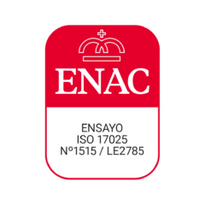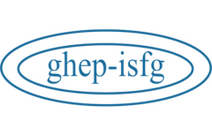Services
The Fisabio-Public Health Sequencing and Bioinformatics Service provides counselling on the planning of studies, as well as the exploitation of massive sequencing data. Our mission is to help the user take full advantage of these technologies and withdraw as much information as possible from the sequencing data. We also offer different pipelines for the analyses, and guidance for the interpretation of results.
Active sequencing protocols
FISABIO's sequencing service offers the possibility of multiplexing (joining samples), according to the coverage required by the user.
- Amplicon Sequencing
- Complete genome sequencing
- Complete genome resequencing
- Transcriptome sequencing
- Metagenome sequencing
- Metatranscriptome sequencing
- Small RNAs sequencing
- Gene panels
Bioinformatics
FISABIO's bioinformatics service offers standardized pipelines for the analysis of sequencing data. We also offer the possibility of writing ad hoc scripts and pipelines, elaborated specifically for the necessities of the users. These analyses include (but are not limited to):
- Bacterial taxonomic annotation (16s rDNA amplicon sequencing)
- Fungal taxonomic annotation (ITS amplicon sequencing)
- Diversity and comparative analysis of microbial and/or fungal communities (16S/ITS)
- Genome/transcriptome and metagenome/metatranscriptome assembly and annotation
- Variant calling in resequencing studies
- Comparative analysis between multiple genomes to define snps/indels profiles and differential genes, pangenomes
Counseling
The Fisabio Sequencing and Bioinformatics Service offers counseling based on the experience acquired in its trajectory: from the first second generation sequencers (Roche FLX + 454), through the evolution of Illumina sequencers, to the new technologies of third generation (Oxford Nanopore Technologies and PacBio). The main aspects are:
- Support in the experimental design of research projects where massive sequencing and bioinformatics support is needed.
- Direction and management of start-up projects for new sequencing and bioinformatics laboratories.
Forensic genetics
Forensic Genetics is a specialty of Genetics that includes a set of knowledge necessary to solve certain legal problems. The types of expertise most requested from the Forensic Genetics laboratory by the courts are cases of biological investigation of paternity, biological criminalistics expertise (study of biological vestiges of criminal interest such as blood stains, sperm, hair, etc.) and, finally identification problems.
At the Fisabio Sequencing and Bioinformatics Service we offer forensic genetics services based on massive second-generation sequencing. We have a MiSeq FGx sequencer developed and validated for forensic genomics that allows obtaining genetic profiles that include more than 200 markers, including autosomal SNPs, autosomal and sexual STRs (Y-STR and X-STR) and mitochondrial DNA genetic profiles. .
We are also the laboratory designated by the Ministry of Justice to carry out DNA studies on historical memory issues in the Valencian Community.
We offer the following services always within the framework of research projects and never to individuals:
- DNA extraction from reference samples of blood or saliva from different supports (buccal swab or tissue) *.
- Obtaining genetic DNA profiles using Illumina technology (MiSeq FGx)
- Mitochondrial DNA Libraries (ForenSeq mtDNA Control Region Kit) *.
- Identification and kinship analysis *.
- Bone DNA extraction, quantification and libraries *.
Note: Services that appear with the symbol (*) are not included in the scope of ISO/IEC 17025 accreditation.
For more information, do not hesitate to contact us by phone 680533221 (via call or WhatsApp) or by writing an email to geneticaforense@fisabio.es.
Quality
In the Testing Laboratory we have a Quality Management System (QMS) in accordance with the UNE-EN ISO/IEC 17025 standard, to ensure that the activity carried out and the technical competence in carrying out tests is carried out with the maximum quality guarantees.
Therefore, our Sequencing and Bioinformatics Service Testing Laboratory is accredited by ENAC with accreditation nº1515/LE2785.
Our accreditation ranges from DNA extracts to obtaining human genetic profiles using the latest NGS massive sequencing technology.

Certifications
Clinical Laboratory Certification (UNE-EN ISO/IEC 17025)
Analysis of DNA extracts from reference blood and saliva swab samples and determination of genetic profiles using NGS.
Intercomparison exercises
In order to offer a quality and updated service, we periodically subject all our processes (both those that are included in the scope of accreditation and those that are not) to intercomparison exercises with external international entities. These controls guarantee the assurance of the quality of the results obtained over time, as well as the sharing of knowledge and innovative concepts between specialists in the world of forensic genetics.
- Internacional Society of Forensic Genetics. Intercomparison exercises GHEP-ISFG
- The GEDNAP (German DNA profiling group) proficiency testing system


Quality and impartiality policy
The implementation of a quality and impartiality policy in accordance with ISO/IEC 17025:2017 is essential to establish and maintain confidence in laboratory results, customer satisfaction and regulatory compliance, thus guaranteeing excellence in technical competence.
Pricing
Fisabio’s platforms and services unit
NEXTSEQ1000/2000
- Preparación de librerías y secuenciación de amplicones por illumina (minimo 60,000 lecturas por muestra ) <= 40 amplicones
- Preparación de librerías y secuenciación de amplicones por illumina (minimo 60,000 lecturas por muestra ) > 40 amplicones
- Indexar y secuenciar amplicones para illumina < 40
- Indexar y secuenciar amplicones para illumina > 40
- Librería de aislados virales y/o amplicones largos (>de 550pb) y secuenciación por illumina (COBERTURA 10.000X)
- Librerías y secuenciación de genomas por illumina < 10Mb cobertura 100x <= 20 muestras
- Librerías y secuenciación de genomas por illumina < 10Mb cobertura 20-50x <= 20 muestras
- Librerías y secuenciación de genomas por illumina < 10Mb cobertura 100x > 20 muestras
- Librerías y secuenciación de metagenomas por illumina 5 millones lecturas lecturas 2×150 pb <= 40 muestras
- Librerías y secuenciación de metagenomas por illumina 10 millones lecturas 2×150 pb <= 40 muestras
- Librerías y secuenciación de metagenomas por illumina 10 millones lecturas 2×150 pb > 40 muestras
- Librerías y secuenciación de metagenomas por illumina 10 millones lecturas 2×300 pb
- Librerías y secuenciación de metagenomas por illumina 20 millones lecturas 2×150 <= 20 muestras
- Librerías y secuenciación de metagenomas por illumina 20 millones lecturas 2×150 > 20 muestras
- Librerías y secuenciación de metagenomas por illumina 50 millones lecturas 2×150
- Librerías y secuenciación illumina de RNAseq / metatranscriptomas < 20 muestras 50 millones de lecturas
- Librerías y secuenciación illumina de RNAseq / metatranscriptomas > 20 muestras 50 millones de lecturas
- Librerías y secuenciación illumina de metatranscriptomas virales 10 millones de lecturas
- Librerías y secuenciación por illumina de smallRNAs 5 millones de lecturas
- Carrera de Miseq kit Micro 300 ciclos
- Carrera de Miseq kit Nano 500 ciclos
- Carrera de Miseq kit v3 150 ciclos
- Carrera de Miseq kit v3 600 ciclos
- Carrera de Miseq kit v2 300 ciclos
- Carrera de Miseq kit v2 500 ciclos
- Carrera de NextSeq® 500/550 High Output Kit v2.5 (300 cycles)
- Carrera de NextSeq® 500/550 Mid Output Kit v2.5 (300 cycles)
- Carrera de NextSeq® 500/550 Mid Output Kit v2.5 (150 cycles)
- Carrera de NextSeq® 500/550 High Output Kit v2.5 (150 cycles)
- Carrera de NextSeq® 500/550 High Output Kit v2.5 (75 cycles)
- Carrera de NextSeq2000 kit P1 300 ciclos
- Carrera de NextSeq2000 kit P3 200 ciclos
- Carrera de NextSeq2000 kit P3 200 ciclos
- Carrera de NextSeq2000 kit P3 100 ciclos
- Carrera de NextSeq2000 kit P3 50 ciclos
- Carrera de NextSeq1000/2000 kit P2 100 ciclos
- Carrera de NextSeq1000/2000 P2 200 ciclos
- Carrera de NextSeq1000/2000 P2 300 ciclos
- Carrera de NextSeq1000/2000 P1 100 ciclos
- Carrera de NextSeq1000/2000 P1 600 ciclos
- Carrera de NextSeq1000/2000 P2 300 ciclos
PACBIO
- RUN de Sequel II Sequencing 2.0 Ki (incluye flowcell)
- Librerías y secuenciación por PacBio de amplicones 16S, 18S y otros amplicones custom
- Librerías y secuenciación por PacBio de Metagenomas
- Librerías y secuenciación por PacBio de Genomas < 10Mb
- Librerías y secuenciación por PacBio de Genomas > 10Mb
Other
- Extracción DNA
- Extracción RNA
- Determinación de tamaño de fragmentos con Bioanalyser
- Tratamiento con DNAasa
- Tramiento con Rnasa
- Síntesis de cDNA para 16S con tratamiento Dnasa y PCR de 16S de comprobación
- cuantificación
- síntesis cDNA
Forensic
- Extracción y cuantificación de muestras de ADN de saliva
- Librerías Forenseq DNA signature
- Librerías ADN mitocondrial
- Análisis de parentesco
- Extracción, cuantificación y librerías de ADN de hueso
Bioinformatics Service
- Flujos de análisis
- Anotación taxonómica de amplicones upstream (16S, 18S, ITS)
- Análisis comparado de amplicones downstream (16S, 18S, ITS)
- Mapeo genomas completos bacterianos o de pequeños eucariotas (< 10Mb)
- Ensamblado y anotación automática de genomas bacterianos (1-20)
- Ensamblado y anotación automática de genomas bacterianos (21-50)
- Ensamblado y anotación automática de genomas bacterianos (> 50)
- Análisis comparado entre genomas bacteriano (< 10Mb), pangenoma
- Mapeo y análisis diferencial de transcriptomas eucariota
- Mapeo, análisis diferencial de transcriptomas eucariota y análisis funcional de rutas metabólicas
- Mapeo y análisis diferencial de transcriptomas bacterianos
- Mapeo, análisis diferencial de transcriptomas bacterianos y análisis funcional de rutas metabólicas
- Mapeo de metagenomas/metatranscriptomas
- Ensamblado y anotación de metagenomas/metatranscriptomas (múltiples muestras, <= 20)
- Ensamblado y anotación de metagenomas/metatranscriptomas (múltiples muestras, 21-50)
- Ensamblado y anotación de metagenomas/metatranscriptomas (múltiples muestras, >50)
- Análisis del resistoma de muestras metagenómicas
- Ensamblado, anotación y análisis diferencial de metagenomas/metatranscriptomas
- Mapeo y análisis diferencial de metagenomas/metatranscriptomas
- Ensamblado automático de genomas/metagenomas mediante tecnología PacBio/Nanopore/Illumina (solo contigs)
- Análisis factores de resistencia/Virulencia en un genoma bacteriano para su caracterización
- Caracterización de genomas bacterianos, anotación y búsqueda de factores de Resistencia/Virulencia, MLST in-silico, filogenia.
- Diseño y/o implementación de análisis paneles de genes personalizados (consultar)
- Análisis de paneles de genes
- Mapeo de genomas de SARS-CoV-2
- Data submission (por conjunto de datos)
Training
- Cursos
- Curso personalizado
